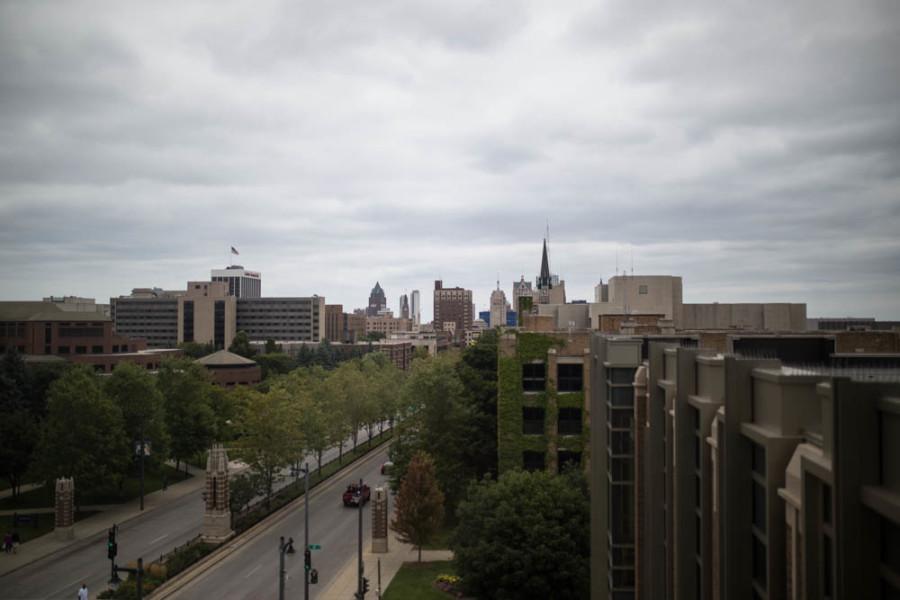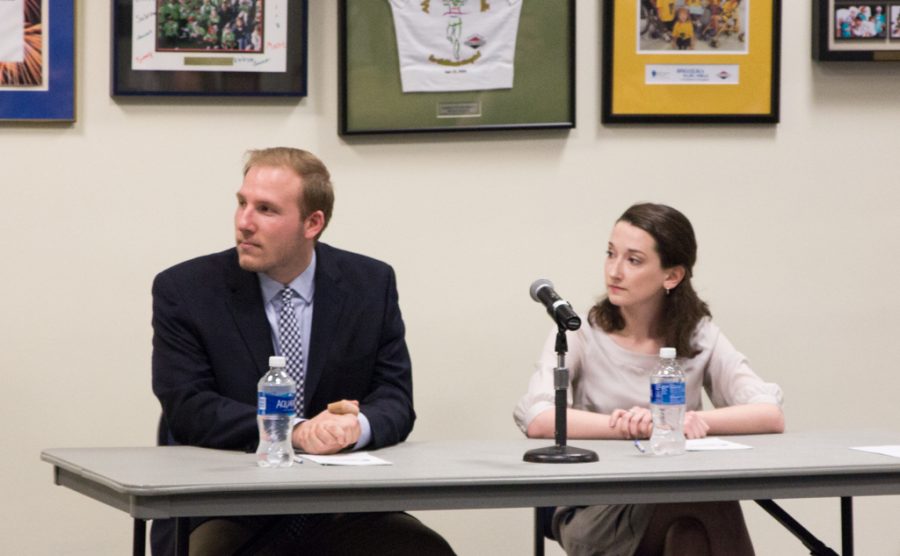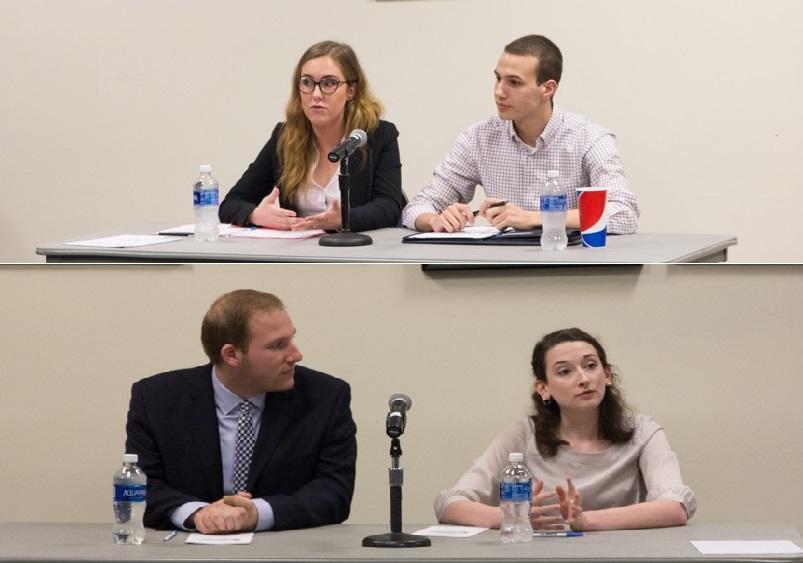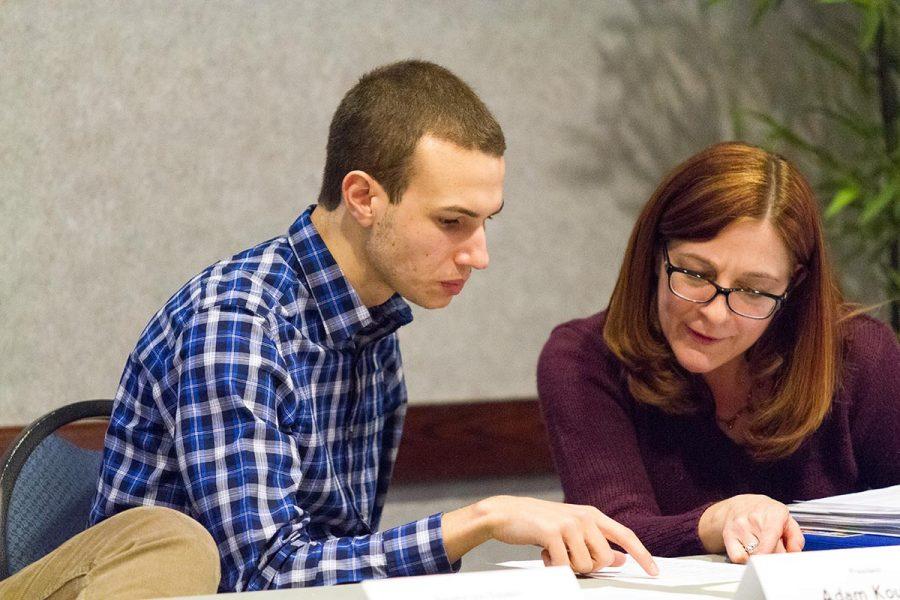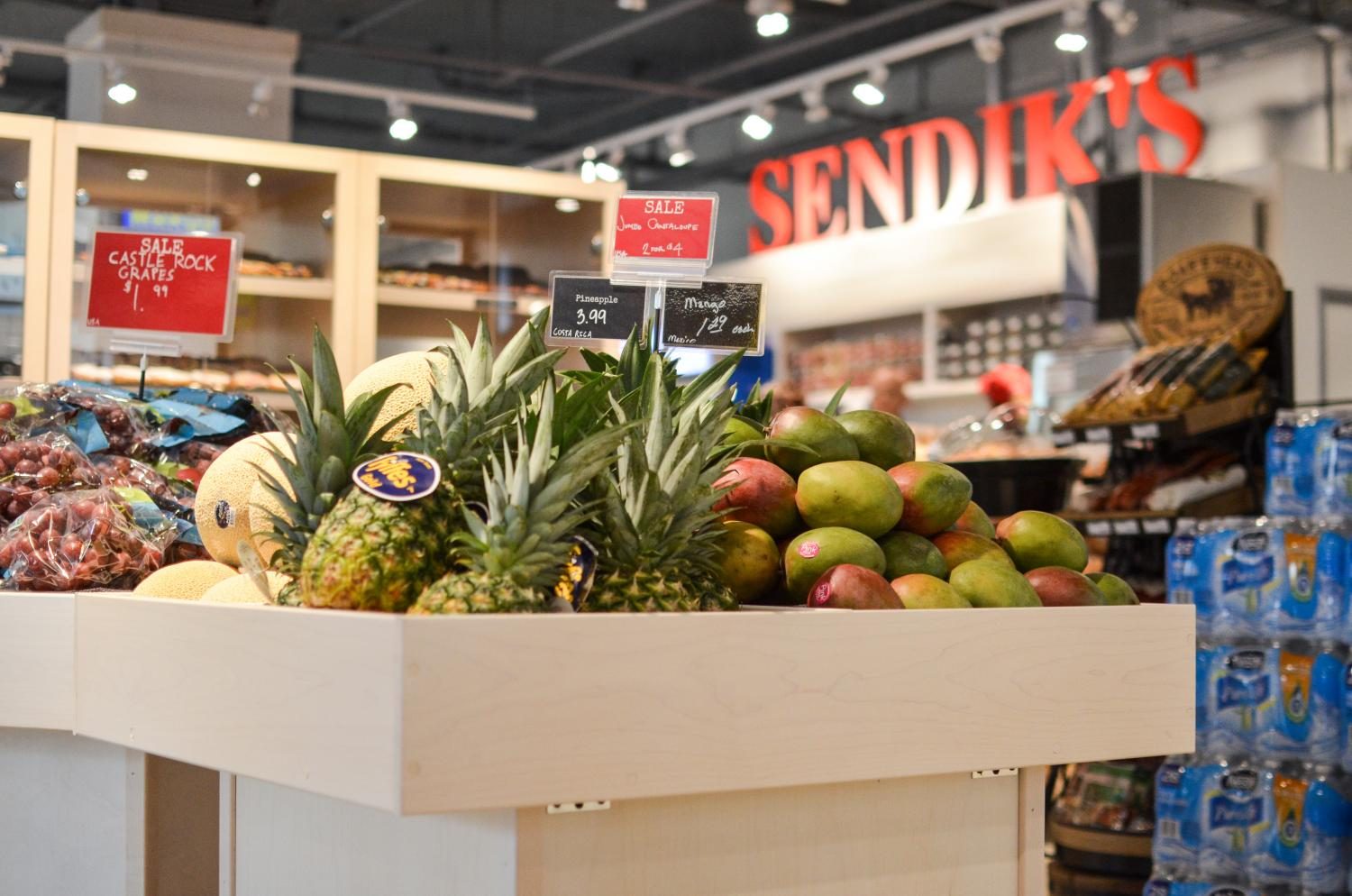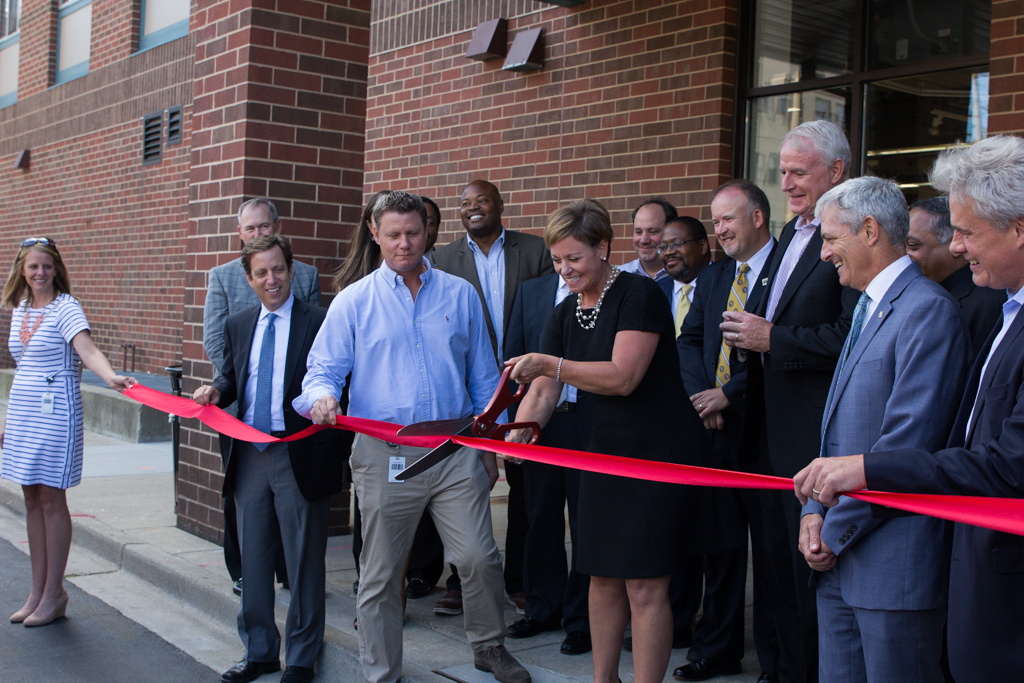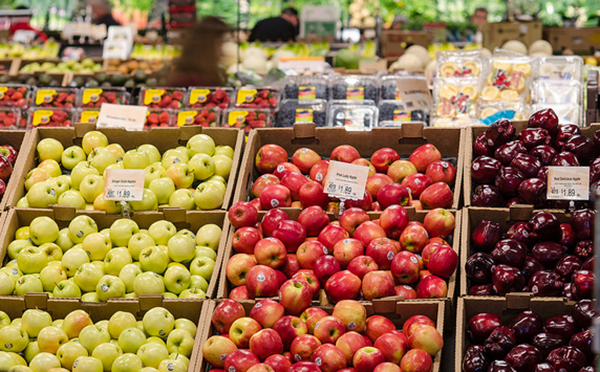Students and members of the community attended the Grocery Store Challenge in the Alumni Memorial Union Ballroom Jan. 31 to help with efforts to bring a grocery store to campus.
Upon entering the ballroom, attendees were put into five separate groups: food pantry; leverage existing retail space; small footprint model; alternative grocery and food literacy.
The event began with a 30-minute panel led by Keith Stanley, executive director of the Avenues West Association; Megan Carver, associate director of the Kohler Center for Entrepreneurship; associate exercise professor Christopher J. Simenz and Kelsey Otero, associate director of the Social Innovation Initiative.
The talk outlined the guiding principle of the Grocery Store Challenge: accessible, affordable literacy. The panel wants to make affordable food accessible to people around the area and also to disseminate health information to make fresh groceries a mainstay in the lives of Milwaukee residents.
The panel stressed that this project will affect the lives of everyone in the surrounding community, as it is also focused on eliminating the food desert that Marquette is part of.
“This isn’t a Marquette project. This is a community project,” Simenz said.
With that goal in mind, several non-Marquette members of the community also gathered to brainstorm solutions to the food desert. This included employees of the City of Milwaukee and representatives from the Avenues West Association.
“We’ve been working at this for 37 years,” Stanley said during the talk.
Otero cited a recent study suggesting there is $30 million in grocery leakage and $34 million in demand at Marquette and the surrounding neighborhoods. This means that there could be enough demand to sustain two small-to-mid sized grocery stores.
New Marquette University Student Government President Adam Kouhel was also at the meeting. Kouhel said he has entered discussion with the owner of the 7-Eleven on Wells Street. The owner is planning at the end of February to dedicate the front section of the store to fresh produce, an example of an alternative grocery.“There really, truly, is a market here,” Otero said.
After the talk, each of the speakers sat in on one of the discussion sections as they hoped to gain innovative ideas from attendees. The end goal is to generate interest and have people develop community-backed plans to present in five-minute pitches Apr. 20. Entrants are expected to follow a uniform, one-page business model.
The pitches, however, are much less formal than the business model. Skits, sketches, plays, songs and any form of presentation are encouraged.
“We’re hoping to get really good ideas that we can pilot,” Otero said. “Once we start piloting and getting feedback in real time, we can find the best solution. We want a true grocer, but we also want to make sure we’re not leaving anyone out.”
“If we had somebody nailed down, we wouldn’t be doing this,” Otero said. “We’re trying to put all of the best minds in the community together to have discussions that they might not have on their own. We are working to try and solve this problem once and for all.”
The pitch meeting is at the 707 building from 4-6 p.m. Apr. 20.

